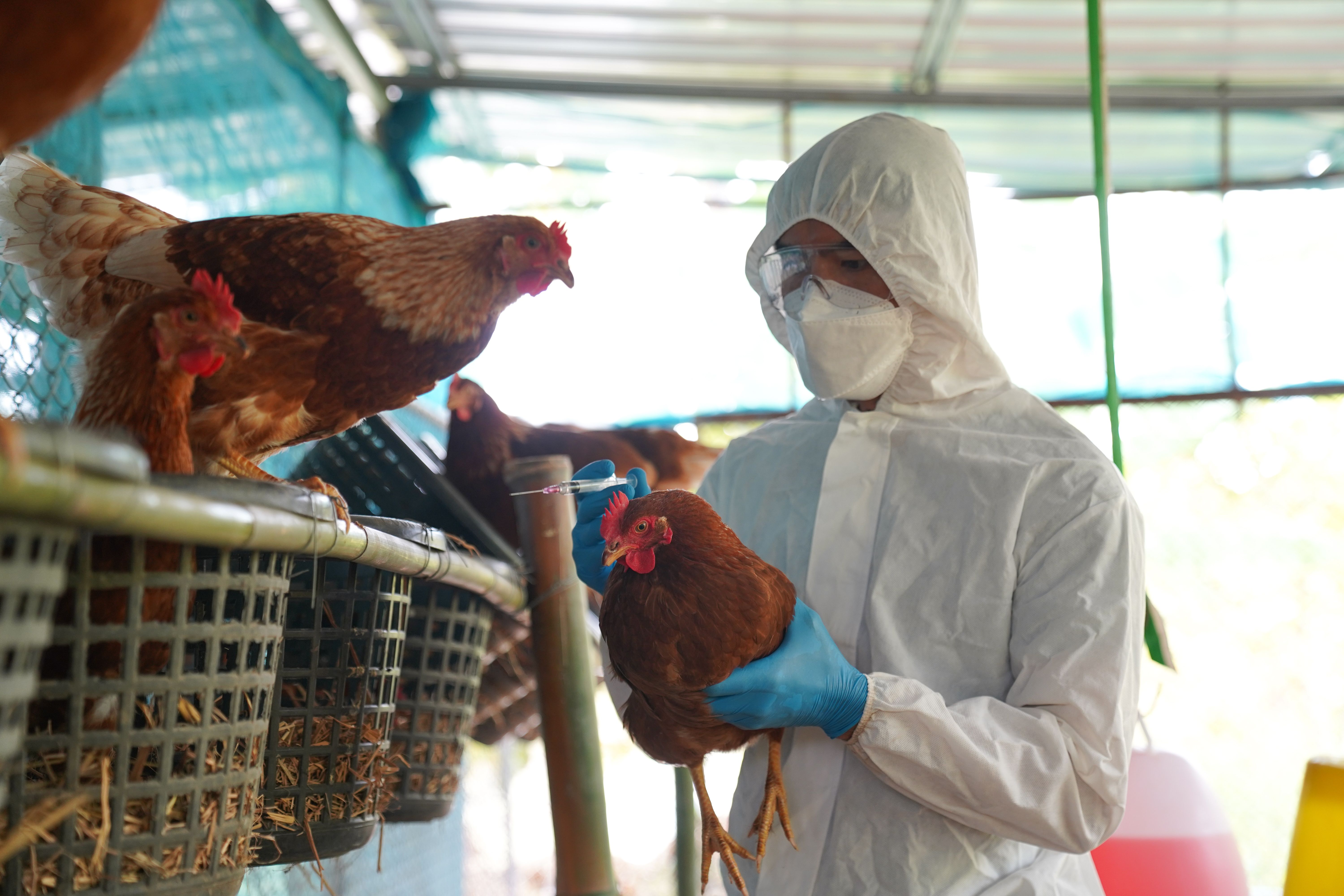- Center on Health Equity & Access
- Clinical
- Health Care Cost
- Health Care Delivery
- Insurance
- Policy
- Technology
- Value-Based Care
Bird Flu Cases Spark More Preventive Measures to Curb Spread
As bird flu cases spread in both livestock and agriculture workers, the Department of Agriculture is taking steps to stop the spread of the virus.
The US Department of Agriculture (USDA) announced that it would be testing bulk raw milk after new cases of bird flu have been reported in both livestock and agriculture workers, primarily across California, Colorado, and Washington.1 The move aims to prevent the continued spread of the virus among these populations.
Bird flu, specifically the H5N1 strain, has been detected in the United States primarily in cattle and poultry. According to the CDC,2 there have been 394 dairy herds affected by bird flu through October 30, with 14 states reporting outbreaks in dairy cows. Poultry has also been heavily affected, with more than 104 million poultry affected across 48 states in that same time period.
The virus has also spread to other livestock. A pig in Oregon recently tested positive for bird flu, which is the first time it has been detected in pigs nationally.3 Pigs are capable of being infected with viruses from both humans and birds, which can cause a virus to mutate to more easily infect humans. Although these pigs were not intended for commercial consumption, the implication for the human spread of the virus could be devastating.
Bird flu has spread throughout the nation's cattle and poultry population | Image credit: PordeeStudio - stock.adobe.com

The first infection of a dairy worker came on April 1, when a dairy worker in Texas was diagnosed after close contact with sick cattle.4 The primary symptoms of the infection were conjunctivitis and eye redness. Since then, approximately 40 human cases have been reported, primarily in California and Colorado.2 According to Cleveland Clinic,5 bird flu can be especially deadly, with more than 50% of all known cases ending in death through April 2024. Through October, none of the cases of bird flu reported this year through infection from cattle or poultry have resulted in death. Human cases are also rare for now, with all cases coming from direct contact with farm animals and no human-to-human spread reported.
However, it is unknown how long the relative safety will last given the reported case in swine and the potential for mutations. The USDA has announced that it will be testing raw milk as a means of controlling the spread.1 The process will involve testing milk in the states where outbreaks of bird flu have been reported in the cattle. States that have not had outbreaks of bird flu in their cattle will be the second line of testing.
According to Reuters, livestock and veterinary groups have been pushing the USDA to improve its surveillance of the virus in light of the spread. The US Animal Health Association had previously called regulation to test cattle prior to their movement across state lines into question, feeling it was inadequate to stopping the spread of the virus. A meeting held in September that included the American Veterinary Medical Association; representatives from the poultry, cattle, and swine industries; and the American Association of Bovine Practitioners had resulted in drafted recommendations, including testing milk tankers, that were sent to the Missouri Department of Agriculture and the USDA, which may have prompted these new regulations.
Tom Vilsack, secretary of Agriculture, noted that the use of bulk milk testing in Colorado has eliminated new cases of bird flu in dairy cows in that state, providing a hopeful view on how effective this may be overall.1
References
- Douglas L. Exclusive: US to begin bulk milk testing for bird flu after push from industry. Reuters. October 30, 2024. Accessed October 31, 2024. https://www.reuters.com/world/us/us-begin-bulk-milk-testing-bird-flu-after-push-industry-2024-10-30/
- H5 bird flu: current situation. CDC. Updated October 30, 2024. Accessed October 31, 2024. https://www.cdc.gov/bird-flu/situation-summary/index.html
- Lovelace Jr B, Edwards E. H5N1 bird flu found in a pig in the U.S. for the first time. NBC News. October 30, 2024. Accessed October 31, 2024. https://www.nbcnews.com/health/health-news/bird-flu-pig-h5n1-first-time-rcna178077
- Cuevas E. WHO’s top scientist sounds alarm about bird flu and need for vaccine development. USA Today. April 19, 2024. Accessed October 31, 2024. https://www.usatoday.com/story/news/health/2024/04/19/world-health-organization-bird-flu-vaccine-concern/73382389007/
- Bird flu (avian influenza). Cleveland Clinic. Updated April 17, 2024. Accessed October 31, 2024. https://my.clevelandclinic.org/health/diseases/22401-bird-flu
